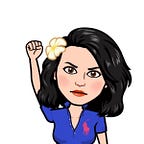3 things my friends did wrong in supporting me through sexual assault (and 3 things that they did right)
After coming out of a sexual encounter that pegged me into limbo, I confided in four male friends who helped me begin an incredibly painful process to find truth, validation, and healing.
I was in limbo for three reasons. First, alcohol was involved. Second, he was my boss. Third, I never consented. What happened on that night was not of my own free will. I was 100% certain of this.
I was abused.
In the immediate days following the assault, he added exclamation marks to all the emails he sent to the team, indicating his happiness and joy. He sent funny selfies to our team to joke around even after I confronted him and attempted to hold him accountable.
Reflecting on all the friends who supported me through this incredibly painful healing journey, here are the do’s and don’ts if you ever find yourself supporting a friend through sexual assault.
Do NOT:
- Speak of your own interpretations. Sometimes, the survivor just needs you to listen. When someone is already traumatized from an assault, the last thing that she needs is to hear that someone she trusted had preyed on all of her vulnerabilities as a woman. The safety that I once felt in his presence suddenly ceased to exist. My world instantly collapsed without warning.
- Label it rape. As soon as my friends heard that alcohol was involved, they all told me that I couldn’t consent under any circumstances, that any penetrative activity would be rape even if I was into it. Suddenly, I became a sexual assault victim and I was not ready to hear it. No one wants the label of being a rape victim. I no longer trusted myself or my own judgment of him. I was already traumatized by his actions that raped me. I was suddenly further traumatized by the labels. No one should have labelled it rape until I was ready to label it rape.
- Call the perpetrator a sociopath. My boss has traits that fit sociopathy. His charm. His unreliability. His insensitivity. His recklessness. His irresponsibility. His criminal background. In psychology, sociopathy occurs on a spectrum. Some are high-functioning sociopaths. Others are blazen criminals. Regardless, the common thread is that sociopaths manipulate others for self-gain, and it is a subtle form of manipulation. My house of cards was falling. Did he open up about himself just to get me to open up about myself and size me up? I was a three-legged table coming out of that night and I toppled over.
What my friends did right:
- Picked up many late-night calls. For so many nights I cried and needed support. I couldn’t sleep. I couldn’t tell my family. I couldn’t confide in my coworkers. I had nowhere to turn. The shame silenced me. The anger built up. The sadness turned inwards. I was on my own. My friends were my only source of support until I was ready to open up for help. I had a lot of mental health struggles after that night traumatized me into a corner of darkness.
- Listened with patience. One of my friends did everything right. He truly felt that my boss was 100% at fault even though I blamed myself, but he bit his tongue until I was ready to hear his full opinion and assessment. He let me talk. He let me come to my own conclusions. He listened and held me in his arms as I cried on his couch. He cooked me dinners. He gave me company. He made me feel valued and loved as a woman. He even made me a care package to cheer me up. And when he told me to not give my boss any excuses for hurting me so much, I instantly erupted into tears. This friend also secretly googled how to support a friend through sexual assault in order to support me through this ordeal. He didn’t want to push me further into my trauma.
- Gave me TLC. As more and more of my friends learned the ordeal that I went through and that I was struggling with my mental health, they all started to pour in their love. Dinners. Drinks. Talks. Walks. Phone calls. Text messages. Everyone checked on me and gave me their love. One friend even sent a medical referral to a psychiatrist to get me in the queue for therapy. I was clearly not myself even though seven months had passed. Headaches. Sadness. Mood changes. Even though most of the healing work had to come from within me and my own willpower to get better, my friends did what they could to help me get back on my feet.
All of my friends acted from a position of love. But sometimes the wrong method can create more harm than help. So be mindful of your words and the language you use with a sexual assault survivor. Encourage but don’t judge. Judgment is what forms the barriers that prevent survivors — both men and women — from coming out.
